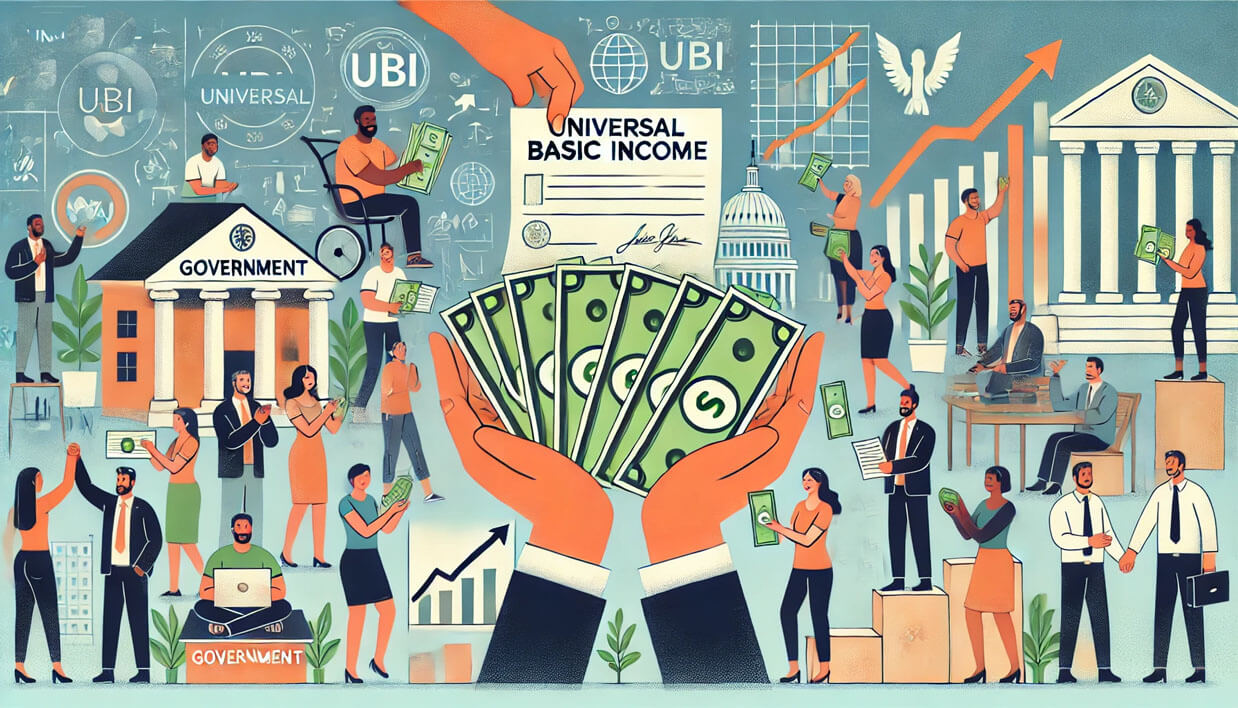Universal Basic Income Outperforms Government-Controlled Tax Distribution
Why Universal Basic Income is Better Than Total Government Control of Tax Income
Universal Basic Income (UBI) presents a compelling alternative to the traditional model of government-controlled distribution of tax income. By providing a direct financial dividend to all citizens, UBI offers several advantages over the conventional approach where the government decides how to allocate tax revenues. Here’s why UBI can be considered a better approach:
1. Direct Impact on Poverty Reduction
UBI:
- Provides immediate financial relief to all citizens, ensuring a basic standard of living and reducing poverty effectively.
- Enables individuals to meet their basic needs without bureaucratic delays.
Government Control:
- Requires complex administrative processes to determine eligibility for various welfare programs.
- May lead to inefficiencies and delays, with some individuals falling through the cracks of the system.
2. Empowerment and Autonomy
UBI:
- Empowers individuals by giving them the financial freedom to make choices that best suit their needs and aspirations.
- Encourages entrepreneurship, education, and personal development as people are not solely focused on survival.
Government Control:
- Often involves restrictive and conditional welfare programs that limit individuals’ freedom to choose how to spend their assistance.
- Can create dependency on government programs, reducing incentives for self-improvement and initiative.
3. Administrative Efficiency
UBI:
- Simplifies the welfare system by providing a uniform payment to all citizens, reducing the need for extensive bureaucracy.
- Lowers administrative costs and minimizes the risk of errors and fraud associated with means-tested programs.
Government Control:
- Involves multiple welfare programs, each with its own eligibility criteria and administrative overhead.
- Higher administrative costs and complexity can lead to inefficiencies and increased chances of mismanagement.
4. Economic Stimulus
UBI:
- Injects money directly into the economy, increasing consumer spending and stimulating demand for goods and services.
- Helps to stabilize the economy by ensuring a consistent level of consumer spending, especially during economic downturns.
Government Control:
- Allocates funds to various projects and programs, which may not have an immediate impact on economic activity.
- Bureaucratic processes can delay the implementation of spending initiatives, reducing their effectiveness as economic stimuli.
5. Reduction in Inequality
UBI:
- Provides the same financial benefit to all citizens, helping to reduce income inequality.
- Ensures that even the most vulnerable members of society receive support.
Government Control:
- Welfare programs often target specific groups, which can lead to unequal distribution of resources and social stigma.
- Ineffective targeting can result in some disadvantaged groups not receiving adequate support.
6. Flexibility and Adaptability
UBI:
- Offers a flexible solution that can adapt to changing economic conditions and individual needs without extensive legislative changes.
- Can be easily adjusted in terms of payment amounts to respond to economic crises or inflation.
Government Control:
- Requires legislative processes to adapt programs to changing conditions, which can be slow and politically contentious.
- Programs are often rigid and slow to respond to emerging needs and economic shifts.
7. Moral and Ethical Considerations
UBI:
- Treats all citizens equally, providing a financial safety net based on the principle of universal human dignity.
- Reinforces the idea that everyone deserves a share of the nation’s wealth simply by being a member of society.
Government Control:
- Distributes resources based on need and eligibility, which can create a sense of exclusion for those who do not qualify.
- Can perpetuate a paternalistic approach to welfare, where the government decides what is best for individuals.
Conclusion
Universal Basic Income offers a streamlined, equitable, and efficient approach to distributing a country’s wealth. By providing direct financial support to all citizens, UBI can significantly reduce poverty, empower individuals, and stimulate economic growth. In contrast, the traditional model of government-controlled distribution of tax income often involves bureaucratic inefficiencies, delayed impacts, and unequal resource allocation. Embracing UBI could lead to a more inclusive, dynamic, and resilient society.

